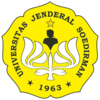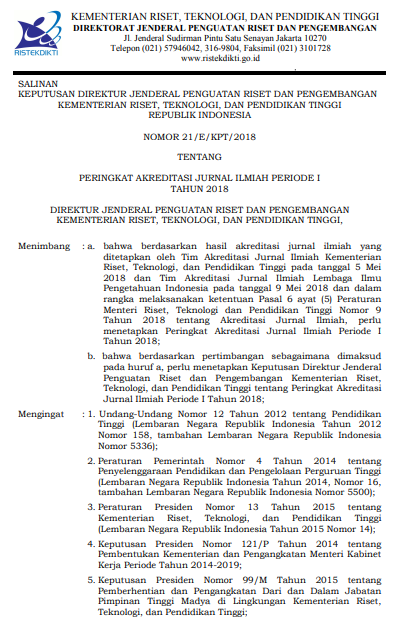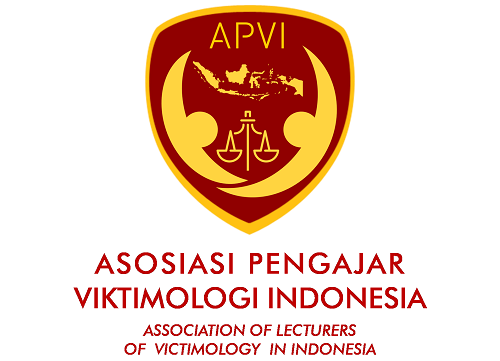NEW CHALLENGES IN ASEAN REGIONAL MARKET: INTERNATIONAL TRADE FRAMEWORK ON HALAL STANDARD
Abstract
The use of non-tariff protection increased during 1980s. One of Non-tariff measures which have been deployed by countries is safety and health standards/technical specifications. In many Muslim countries, Halal standard has essential part in protecting consumer rights. National labeling laws must seek a balance between labeling requirements and certification to minimize barriers to the free trade. The problem is every nation has own Halal Standard. This could result trade dispute among parties since import product cannot enter local market based on different Halal Standard. This situation remains as non-tariff barriers to free trade. By capturing the differences of Halal Standard in some ASEAN countries, the result shows some challenges rise for ASEAN to create one unified Halal Standard framework in order to gain strong ASEAN single market in the future.
Keywords: non-tariff barriers, halal, standard, international trade.
Full Text:
PDF View
References
Ab Halim, Mustafa‘Afifi and Salleh, MM Mohd. “The Possibility of Uniformity on Halal Standards in Organization of Islamic Countries (OIC) Country." World Applied Sciences Journal. Vol. 17 No. 17. 2012. Pp. 6-10;
Ab Talib, Mohamed Syazwan et al. “Emerging Halal Food Market: An Institutional Theory of Halal Certificate Implementation". Journal Management Research Review. Vol. 39 No. 9. September 19. Pp. 987-997. DOI: 10.1108/MRR-06-2015-0147;
ASEAN Cooperation in Food Agriculture and Forestry Major Achievements. Retrieved from website http://www.asean.org/ communities/asean-economic-commu-nity/item/asean-cooperation-in-food-agriculture-and-forestry-major-achie-vements. accessed on May 14th 2017.
ASEAN Food Safety Network. Without Years. Matrix For The Development Of ASEAN Common Food Control Requirements. Retrieved from: http://www.asean-foodsafetynetwork.net/files/Matrix.pdf Accessed May 14th . 2017;
Ashadi, Reki Wicaksono. “Halal Science: An Introduction”. Journal of Halal Reseach. Vol.1 No.1. September 2015. Pp. 32-35;
Central Lab Thai. without years. National Halal Standard Thailand. Retrieved from: http://www.centrallabthai.com/web/uploadfiles/pdf/Agriculture/National_Halal_Standard_English.pdf. accessed on May 14th . 2017;
Fischer, Johan. "Branding Halal: A Photographic Essay on Global Muslim Markets". Anthropology Today. Vol. 28 No. 4. 2012. Pp. 18-21;
Fitra, Sulhan Abu. “Makanan Menentukan Kuali-tas Generasi dan Peradaban”. Journal Halal. Vol. XVIII No. 113. Mei-Juni 2015. Pp.32-34;
HDC. Without years. Halal Certification. Retrieved from http://www.hdcglobal.com/ publisher/gwm_halal_certification#sthash.7tcXwEju.dpuf. accessed on April 20th . 2017.
Hutani, Rosy. Ashadi. Reki Wicaksono dan Hakim. Lukmanul. “Halal Paper Production: A Review”. Paper. Proceeding Book The Second Symposium On Global Halal Research. LPPOM MUI. Jakarta: September 30th2015;
Ismail, Abdul Ghafar and Mohd Noor. Mohd Ali. “Halal Finance and Halal Foods: Are They Falling Apart?”. Journal Acta Universitatis Danubius. Economica. Vol. 12 No. 3. 2016. Pp. 113-126;
Johan, Eva. “Lesson of Implementing Non-Dis-crimination Principle on Indonesia-US Clove Cigarettes Case”. Indonesia Journal of International Law. Vol. 11 No. 1. October 2013. Pp.105-111;
Jusmaliani and Nasution, Hanny. “Religiosity Aspect in Consumer Behaviour: Determinants of Halal Meat Consumption." ASEAN Marketing Journal. Vol. I No.2. 2013, P. 10-15.
Kasapila, William and Shaarani, Sharifudin MD. “Harmonisation of Food Labelling Regulations in Southeast Asia: Benefits, Challenges and Implications". Asia Pacific Journal of Clinical Nutrition. Vol. 20 No. 1. 2011, P.1-8;
KIM, Si Hong. “East Asian Regionalism: A View from Europe”. Paper. International Conference: Recent Evolution in Law in Asia: Globalization and Integration, Law Seminar. Universitas Indonesia. Ja-karta. 6-7 August. 2015;
Limenta, Michele, et al. “Disabling Labelling in Indonesia: Invoking WTO Laws in The Wake of Halal Policy Objectives”. Journal World Trade Review. 2017. Pp. 1-26. DOI: 10.1017/S1474745617000167;
Lindsey, Tim. “Monopolising Islam: The Indonesian Ulama Council and State Regulation of the ‘Islamic Economy". Bulletin of Indonesian Economic Studies. Vol. 48 No. 2. August 2012. Pp.253-274. DOI: 10.1080/00074918.2012.694157;
LPPOM MUI. Without Years. “Halal Certificate Achievements”. Available on: http:// www.halalmui.org/newMUI/index.php/main/go_to_section/2/31/page/2. accessed April 20th 2017;
LPPOM MUI. Without Years. Halal Products and Halal Requirements in Indonesia. Retrieved from: http://www.taiwantrade. com.tw/CH/download/1901057. accessed May 14th 2017;
Mahmud, Hadi. May 5th 2011. A Unified Halal Standard Mooted For Brunei, Malaysia, Indonesia. Retrieved from: http:// halalmedia.net/unified-halal-standard-mooted-brunei-malaysia-indonesia/. accessed on May 15th 2017;
Majlis Ugama Islam Singapura, without Years, Singapore MUIS Halal Standard, Retrieved from: http://halal.sg/Industry/ Halal-Standard.html. accessed on 25th . 2017.
Millie, Julian and Hindasah, Linda. “Regional Aspects of the Indonesian Ulama Coun-cil’s Ideological Turn". The Asia Pacific Journal of Anthropology. Vol. 16 No. 3. May 27. 2015. P.260-281. https://doi. org/10.1080/14442213.2015.1034167.
Muhammad, Nazlida. Vai Shiem Leong. Normalisa Md Isa. "Does the country of origin of a halal logo matter? The case of packaged food purchases". Journal Review of International Business and Strategy. Vol. 27 Issue 4. 2017. Pp. 484-500. DOI: 10.1108/RIBS-06-2017-0049;
Nasir, Mohamad Abdun. “The ʿUlamāʾ, Fatāwā and Challenges to Democracy in Contemporary Indonesia". Islam and Chris-tian–Muslim Relations Journal. Vol. 25 No. 4. October 2014, Pp.489-505. DOI: 10.1080/09596410.2014.926598;
Othman, Baharudin. Sharifudin Md Shaarani. and Arsiah Bahro. “The Potential of ASEAN in Halal Certification Implementation: A Review". Pertanika Journal of Social Sciences & Humanities. Vol. 24 No. 1. 2016. Pp. 23-25;
Report The WTO Secretariat. July 2014. “Joint FAO/WHO Food Standards Programme Codex Alimentarius Commission”. Document CAC/37 INF/3. available on website https://docs.wto.org or www. codexalimentarius.org. accessed on April 27th . 2017;
Roestamy, Martin. “The Assurance of Halal Products in Legal System of Indonesia, Regional Perspectives on Law and Rights: Where Are We Now and Where are We Heading?”. Paper. Proceeding Book of The 2013 Padjadjaran International Legal Conference Series. Unpad PAHAM. Bandung. 22-24 October 2014;
Sabran, Abdurrachman dan Noeri. Nuradi. “Sertifikasi Halal”. Journal AKSES. Vol. 33 Agustus 2015. Pp.3-5;
Salama. April 6th. 2015. “WHS: Harmonising Halal Standards Within The ASEAN Region”. Retrieved from: http://halalfo-cus.net/whs-harmonising-halal-stan-dards-within-the-asean-region/. accessed on May 10th. 2017.
Salehudin, Imam. “Halal Literacy: A Concept Exploration and Measurement Validation”. ASEAN Marketing Journal Vol.II No. 1. June 2010. Pp.10-16;
Salwa, Siti Md. Sawari and Mohd Al’Ikhsan Gha-zali. “Amalan Standard Halal Di Negara-Negara Asia Tenggara." UMRAN-Inter-national Journal of Islamic and Civiliza-tional Studies (EISSN: 2289-8204). Vol. 1 No. 1, November 2014. Pp.12-19. https://doi.org/10.11113/umran2014.1n1.12.
Spiegel, M. van der et al. “Halal Assurance in Food Supply Chains: Verification of Halal Certificates Using Audits and Laboratory Analysis". Journal Trends in Food Science & Technology. Vol. 27 No. 2. October 2012. Pp.109-119. DOI: 10. 1016/j.tifs.2012.04.005;
Suhodo, Diah Setiari. 2014. Sertifikasi Halal: Modal Untuk Produk yang Terpercaya, Peluang Usaha Produk Halal di Pasar Global: Perilaku Produsen dalam Mem-produksi Produk Halal. Jakarta: LIPI Press;
Sundram, Pushpanathan. “ASEAN Community: Regional Strategies to Tap Global Halal Business Opportunities”. Paper. Mana-ging Director. Seminar Halal Ingredients Asia. Kuala Lumpur Malaysia. 21st Sep-tember. 2015.
Tan, Kim Hua. et al. “The Impact of External Integration on Halal Food Integrity.” Supply Chain Management: An International Journal. Vol. 22 No. 2. March 2017. Pp. 186-199. DOI: 10.1108/SCM-05-2016-0171;
Ufen, Andreas. “Mobilising Political Islam: Indonesia and Malaysia Compared". Journal Commonwealth & Comparative Politics. Vol. 47 No. 3. July 2009. Pp. 308-333. DOI: 10.1080/14662040903073761;
WTO. 1997. General Guidelines For Use Of The Term Halal. Retrieved from: http:// www.fao.org/docrep/005/y2770e/y2770e08.htm. Accessed on May 5th. 2017;
WTO. Without Years. SPS Agreement. Retrieved from: https://www.wto.org/english/ tratop_e/sps_e/spsagr_e.htm. accessed on May 10th 2017;
WTO. Without Years. TBT Agreement. Retrieved from: https://www.wto.org/eng-lish/docs_e/legal_e/17-.htm. Accessed on May 10th 2017.
DOI: http://dx.doi.org/10.20884/1.jdh.2018.18.1.809
Refbacks
- There are currently no refbacks.
JURNAL DINAMIKA HUKUM Indexed by :
 | Jurnal Dinamika Hukum | |
| Faculty of Law, Universitas Jenderal Soedirman | Copyright of Jurnal Dinamika Hukum | |
| Yustisia IV Building, Law Journal Center | ISSN 2407-6562 (Online) ISSN 1410-0797 (Print) | |
| Purwokerto, Central Java, Indonesia, 53122 | JDH is licensed under a Creative Commons Attribution 4.0 International License | |






